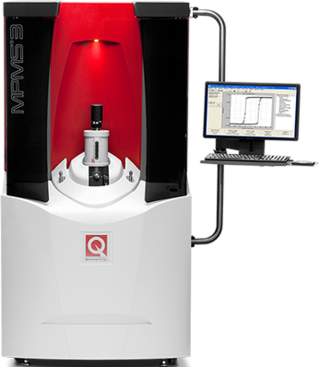UC Riverside has received a $633,000 grant from the National Science Foundation through its Major Research Instrumentation Program to support the acquisition of a cryogen-free magnetometer used to research low-dimensional magnetic and superconducting materials. Such materials have applications in nanodevices, superconducting qubits, magnetic sensors, and memory devices.
A magnetometer is an instrument that measures magnetic moment, defined as the magnetic strength and orientation of a magnet or other object that produces a magnetic field. In a cryogen-free magnetometer, cooling is achieved without using cryogenic liquids such as liquid nitrogen or liquid helium. Instead, the instrument is mechanically cooled with helium gas in a closed cycle system, based on refrigeration technology.

The MPMS3 SQUID magnetometer is expected to arrive next summer and will be installed in the Physics Building on campus.
“This shared instrument and the research it will enable will help recruit new faculty members in several departments on campus in the areas of quantum materials, solid state chemistry, magnetic materials, and spintronics,” said Jing Shi, the principal investigator of the two-year grant and a distinguished professor of physics and astronomy.
According to Shi, this magnetometer can measure small magnetic moments at high speed and is uniquely suited for serving many users, especially researchers in the College of Natural and Agricultural Sciences and the Marlan and Rosemary Bourns College of Engineering, or BCOE.
“It impacts a broad range of ongoing research projects at UCR, including the investigation of new properties in magnetic and superconducting thin films and heterostructures, new phenomena arising from proximity coupling at interfaces, and new applications of magnetic nanoparticles,” he said.
The grant will help educate and train graduate students, undergraduate students, and postdoctoral researchers in the departments of Physics and Astronomy, Chemistry, and departments in BCOE.
“Such training will prepare them for employment in high technology companies,” said Owen Long, a professor of physics and astronomy, who chairs the Department of Physics and Astronomy.
The following faculty members are co-principal investigators of the grant: Christopher Bardeen, Boniface Fokwa, Huinan Liu, and Peng Wei.